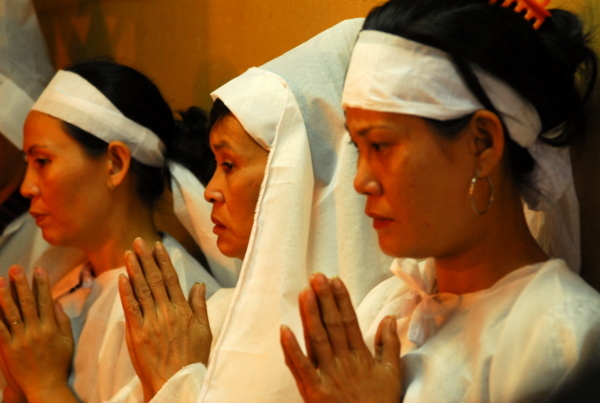Bahrain-Brunei
 04.3.2019 |
04.3.2019 |  tm leonard
tm leonard I worked in Kuwait from 1985-1988.
Brunei enacting anti-LGBT laws reminded me of meeting Dave in Bahrain. He lived in Saudia Arabia and told me a story.
I put his story in two books, A Century is Nothing, and Weaving A Life, V1.
______
It was raining in the desert before Christmas as Gulf Air Flight 212 departed Kuwait. I encountered gray turbulence in neutral airspace where Islamic law against the consumption of alcoholic beverages had no influence.
By Carlsberg numero dos we were at 25,000 feet in blue sky and white thunderheads. Airmobile again.
In Bahrain I collected a visa stamp, took a cab to the Diplomat Hotel and room 621 with an excellent view of the aquamarine Gulf and new civic center construction project.
I opened windows, an ice cold beer, calibrated rock and roll music on the radio and ordered a three-egg omelet with hash browns and whole wheat toast complimented by thick Turkish coffee. A Filipino waitress in pink room service motif brought it up.
The next afternoon I took Taxi #1 into Bubba Bahrain, a maze of haphazard streets. I bought vitamins at a pharmacy and escaped expensive shopping zones entering the old suq lined with herbs, spices, textiles, fruits, vegetables, secondhand watches, goats, sheep, brooms, tea and ancient emulations.
From an inside secret pocket of a worn olive drab photographer’s vest, I pulled out a small, simple and precise European designed 35mm range finder camera loaded with 125 ASA black and white film; a gift from the gods of optical ingenuity, a well-designed tool, a work of art.
I imagined a donkey's head covered in burlap feed bag to prevent attacks on unsuspecting humans. Down twisted alleys I wandered, shooting old men and women, trapping spirits on negatives. Children’s faces were captured forever wearing cartoon character masks with innocence preserved behind wide glowing eyes.
Delicate eroding architecture, thatched reeds on woven bamboo poles embedded in mud, iron grated windows and carved balconies of blue and white mosaics were threaded into a black canister.
In early evening I stopped at a Persian carpet retailer to learn about his business. Over endless cups of tea he shared facts:
1. There is a difference between “expert” and “well knowledged (sic).”
2. Carpet making is based on tradition, history, quality and time. Takes 14 months for some carpets.
3. Design and a particular technique is required to produce a good quality carpet.
4. His carpets were woven and stored in a warehouse in Iran before being smuggled by dhow to a Dubai wholesaler. A buyer in Bahrain purchases them by the bundle paying a single price for the lot before shipping them to the shop.
5. Cotton costs BD (Bahraini dinar) 2/lb.
Neck wool BD 7/lb.
Silk BD 9/lb.
6. Good prices were available now with the recent devaluation of the Iranian Rial.
7. Be aware of specifics. Is it pure silk or combed wool? What are the precise number of knots per square inch?
I thanked him and walked to the Dolmen Hotel, an old foreign oasis constructed for aircrews. Interior pseudo classic Arabic architecture featured vaulted windows, wattle thatch and poles on low ceilings.
Dave, from the Twin Cities sat at the bar complaining about needing a third operation to correct poor metatarsal bones in his left foot. Saudi doctors messed him up twice so he came to Bahrain for another operation.
"I saw three Filipino males have their right hands cut off in Riyadh for stealing,” he said, meaning Sharia law. “Justice is served every Friday at high noon in the town square. Authorities tied their arms down on boards to support the wrists.”
“Amazing,” I said.
“Yes," Dave said. "The multawa, an official, approached one man, flashed his sword into the air and severed his right hand off. He screamed. The multawa moved down the line doing his job. Another man carrying a blazing torch applied fire to the stump to cauterize the wound.”
Lynnette, a 31-year old Filipino waitress at the Dolmen was pleasant, lonely and bored. After five years doing cashier work in Manila she found a job in Bahrain.
“My dream is to save money and buy a house back home.”
“Do you like it here?”
“Not really. The wages are poor, they give us lousy Indian food and there’s no social life.”
“Why’s that?”
“Hotel management locks us in at 7 p.m.”
“Sounds like slave labor. Been going on in the Gulf for a long time.”
“Well," she sighed, "it’s just a job. It's not forever.”
At happy hour, the Intercontinental Hotel was jammed with Arabs, English investment suits and punkers. I ordered a beer at the bar. A small Bahraini man asked questions.
“Where are you from?”
“Everywhere.”
“What do you do?”
“I kill people. I'm a mercenary.”
“I don't believe you,” said his eyes.
“Yes. I kill people for a living. I am very busy 24/7. It’s a job. It passes time. People pay good money for me to take care of their problem. I’m paid to clean up other people’s messes. The only rule is no woman, no kids.”
He wanted to know something about his life. I predicted his age, family history, occupation and future. He left me alone.
Outside the Kuwait suq battered red and white rusting water trucks with chipped paint stood idle inside a wire compound leaking H2O into dust. Two Bedouins sat on metal folding chairs with crushed plastic buckets and sacrosanct rags collecting dust near the Fifth Ring Road waiting for drivers needing a car wash.
Waiting was their patient life in the desert, waiting for dusty cars, waiting for oil to be discovered below sand, waiting inside an omnipresent yellow haze swallowing everything.

Funeral in Ho Chi Minh






Reader Comments